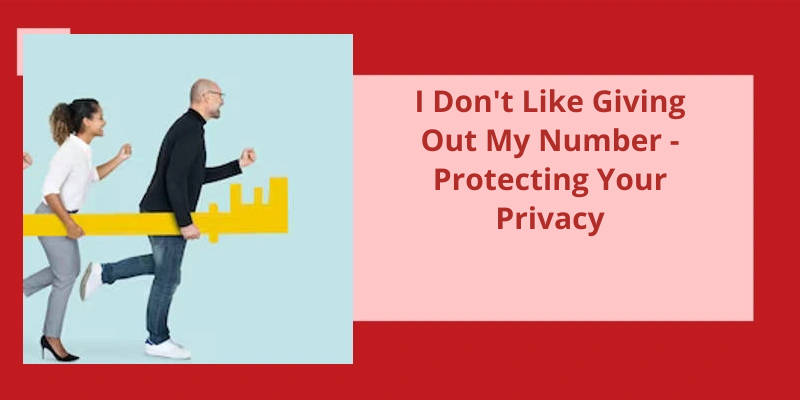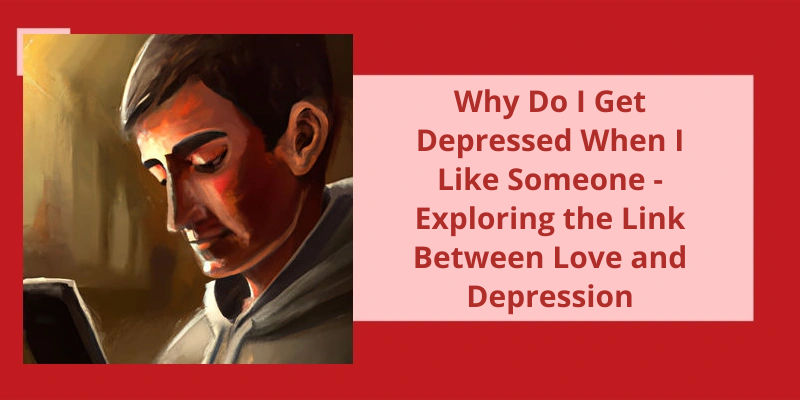Protecting one's privacy has become increasingly important in today's digital age, where personal information is easily accessible and often exploited. One aspect of privacy that many individuals are concerned about is sharing their phone numbers with others. The reluctance to give out one's number is neither rude nor uncommon; rather, it stems from the desire to maintain control over personal boundaries. Instead of feeling pressured to provide a phone number, individuals have the right to assert themselves and politely decline, stating that they don’t give out their number. There’s no obligation to provide further explanation or justification; the decision to withhold one's phone number is as simple as that. Fortunately, there are alternative means of communication that can be provided to interested parties, such as email, which offer a less invasive way of staying in touch without compromising one's privacy or causing unnecessary anxiety.
Is It Rude to Not Give Someone Your Number?
When someone asks for your phone number, it’s not inherently rude to decline. It’s crucial to recognize that your phone number is personal information, and you’ve the prerogative to keep it private if you so desire. Nevertheless, it’s essential to handle the situation with courtesy and respect when you opt against sharing your number.
You can emphasize that it’s nothing to do with the individual requesting it and that it’s simply a matter of personal boundaries and privacy. By expressing this explanation sincerely and kindly, you convey your decision while maintaining a respectful demeanor.
You might also consider offering alternative methods of communication that don’t involve sharing your phone number. Suggesting communication through email, social media platforms, or messaging apps can be a compromise that allows you to stay connected without compromising your privacy. This way, youre acknowledging the persons request for contact while preserving your boundaries.
Furthermore, it’s essential to remember that you’re under no obligation to provide a reason for not sharing your phone number. Simply stating that youre not comfortable sharing your number should be enough. Asserting your right to privacy is perfectly valid, and it’s crucial to communicate this assertiveness politely and confidently.
Lastly, it’s important to be aware that individuals may react differently when you decline to share your number. Some people will respect your decision and understand your need for privacy. However, others may persist or become dismissive of your choice. It’s crucial to stand firm in your decision and reiterate that it’s your personal preference while remaining respectful and composed.
Remember that your privacy is a fundamental right, and it’s important to maintain it if that’s your preference. Politeness and respect should remain at the forefront of your interactions, even when declining to share personal information. By being clear, offering alternatives, and standing firm in your decision, you can protect your privacy while maintaining courteous communication.
The Potential Risks and Concerns of Giving Out Your Phone Number to Strangers
- Unwanted calls and messages from unknown individuals
- Potential exposure to scams and fraudulent activities
- Invasion of privacy and loss of personal information
- Potential harassment or stalking
- Increased vulnerability to identity theft
- Possible access to your location and tracking
- Potential for unwanted solicitations and marketing communications
- Possible misuse of your phone number for illegal activities
- Risk of your phone number being sold or shared with third parties
- Potential for unwanted charges or subscriptions
However, if you’re comfortable with it, there’s no harm in taking the initiative and giving a guy your number without him explicitly asking for it. It can show confidence and interest on your part.
Is It OK to Give a Guy Your Number Without Him Asking?
When it comes to sharing your personal contact information, such as your phone number, it’s important to prioritize your privacy and personal boundaries. While it’s acceptable to give a guy your number without him explicitly asking for it, you might want to consider other factors before making this decision. Gauge your level of interest and assess whether he’s shown genuine and respectful behavior towards you. If so, then sharing your number may be a viable option.
However, it’s essential to remember that you’ve the right to protect your privacy. If youre uncomfortable with the idea of sharing your phone number, there are alternative ways to keep in touch. Nowadays, social media platforms offer a convenient and less invasive method of staying connected. You always have the option of exchanging usernames or handles on these platforms without breaching your personal boundaries.
Additionally, if youre genuinely interested in getting to know someone better, it’s also worth considering the perspective of reciprocity. Instead of solely focusing on offering your number, you can take the initiative to ask for his number as well. This approach can create a more balanced dynamic and show that you’re invested in building a connection.
Ultimately, each individual has their own comfort level and preferences when it comes to sharing personal information. It’s crucial to make decisions that align with your own values and boundaries. Trust your instincts, and remember that you’ve the right to protect your privacy and only share your contact information when you feel comfortable doing so.
The Potential Risks and Considerations of Sharing Your Personal Contact Information With Someone You Don’t Know Well
Sharing your personal contact information with someone you don’t know well can pose potential risks to your privacy. It’s important to consider the following factors before giving out your number:
1. Unwanted communication: Sharing your number with unfamiliar individuals can lead to unsolicited calls, texts, and messages. This can be annoying and intrusive.
2. Spam and scams: Providing your contact information to unknown sources may increase the likelihood of receiving spam emails, fraudulent offers, or even falling victim to scams.
3. Privacy breaches: Your personal contact details in the wrong hands can potentially be misused, leading to privacy breaches and the risk of identity theft.
4. Location tracking: Certain apps and services require access to your contact information and may use it to track your location, compromising your privacy and security.
Considering these risks, it’s essential to be cautious when sharing personal contact information with individuals you don’t know well. It’s advisable to evaluate the necessity and trustworthiness of the person or organization before sharing such details.
Source: Is it really cringe to give a guy your number on a piece of …
It’s crucial to exercise caution when it comes to sharing your phone number, as scammers and fraudsters often exploit this information to target unsuspecting individuals. These malicious actors can easily obtain your cell phone number from public sources and potentially subject you to various scams or attempts to acquire personal data.
Is It Safe to Give Your Number Away?
Giving out your phone number can potentially put you at risk of being victimized by scammers and fraudsters. These individuals often target unsuspecting people via phone calls and can obtain your cell phone number through various public sources. Once they’ve your number, they can attempt to scam you out of your hard-earned money or trick you into revealing personal and sensitive information.
Scammers are skilled at using manipulative tactics to deceive individuals. They may pretend to be representatives from reputable companies or organizations, claiming that you’ve won a prize or that there’s an urgent matter that requires your immediate attention. By using your phone number as a way to establish contact, they can craft convincing stories to manipulate you into providing financial details or personal information such as your social security number or banking credentials.
Furthermore, fraudsters are known to engage in identity theft, where they use your personal information to commit various crimes in your name. With access to your personal information, they can open fraudulent accounts, make unauthorized purchases, or apply for loans, leaving you to deal with the devastating consequences.
To protect your privacy and prevent falling victim to such scams and frauds, it’s crucial to be cautious when sharing your phone number. Avoid providing it to unfamiliar individuals or entities unless necessary and trustworthy. Additionally, consider setting your social media profiles to private mode to limit who’s access to your contact information. If you suspect any suspicious activity or receive calls from unknown numbers, refrain from engaging and report them to appropriate authorities or your mobile service provider.
Ways to Protect Your Phone Number From Being Obtained by Scammers and Fraudsters.
- Use a caller ID app that blocks spam calls
- Avoid sharing your phone number on public platforms
- Enable two-factor authentication for your accounts
- Be cautious when giving out your number online
- Consider getting a separate phone number for online transactions
- Register your number on the national Do Not Call list
- Don’t answer calls from unknown numbers
- Use a virtual phone number for added privacy
- Regularly update your phone’s software for security patches
- Use strong, unique passwords for your accounts
When someone asks for your number, it can be a flattering and exciting moment. However, it can also leave you unsure of how to respond. Do you give it out freely or play it coy? It ultimately depends on your own comfort level and the vibes you’re getting from the person asking. Here are a few flirty responses to consider when faced with this question.
How Do You Respond to Someone Asking for Your Number?
When faced with the situation of someone asking for your number, it’s important to consider your personal boundaries and privacy preferences. Some individuals may be comfortable giving out their number without hesitation, while others may have reservations. If you find yourself in the latter group, it’s perfectly acceptable to respond by politely declining the request. You can explain that you prefer not to share your number at this time and give a general reason such as, “Normally, I don’t share my number with anyone.”
In situations where you want to maintain a playful or flirty tone, you can respond with light-hearted remarks to deflect the question. For example, you could say, “Thats what I was about to ask,” or “Well, this is the first time Im giving my number to someone so fast after knowing their name.”. These responses convey a sense of humor while still subtly indicating that you aren’t fully comfortable with sharing your number.
Alternatively, you can offer an alternative method of contacting you that doesn’t involve sharing your phone number. For instance, you could suggest, “Sure, you can give me a miss call so that I can have yours, too.”. This allows you to maintain some control over the situation while still engaging in communication.
Ultimately, it’s crucial to prioritize your privacy and feel comfortable with the choices you make regarding sharing personal information. If you’re hesitant about giving out your number, it’s perfectly acceptable to politely decline or redirect the conversation. Remember, you’ve the right to protect your privacy and only share your contact information with those you trust.
How to Navigate the Balance Between Maintaining a Friendly or Playful Demeanor While Still Expressing Discomfort With Sharing Your Number
- Start by setting clear boundaries
- Use assertive communication techniques
- Express your discomfort calmly and confidently
- Offer alternative ways to stay in touch
- Avoid using aggressive or rude language
- Emphasize the importance of maintaining a friendly connection
- Suggest meeting in person or using alternative communication platforms
- Listen attentively to the other person’s response
- Reinforce your boundaries if necessary
- End the conversation politely if the person continues to insist
In today’s digital age, the question of whether it’s safe to give strangers your phone number lingers. The potential for harassment from unknown individuals is a valid concern that shouldn’t be overlooked. While misusing your phone number by unsolicited calls and texts without consent may be an inconvenience, the darker side of this issue lies in the possibility of your personal information being sold and exploited on the internet.
Is It Bad to Give Strangers Your Number?
Is it bad to give strangers your number? Potential harassment from strangers is a valid reason to think twice before handing out your phone number. Not only could that individual use it to call or text you without consent, but in more serious cases, your personal information can be sold for exploitation on the internet.
In this digital age, where information is readily available at our fingertips, it’s essential to safeguard our privacy. Giving your number to a complete stranger can expose you to unwanted advances, telemarketing scams, or even identity theft. It’s crucial to be cautious and consider the potential risks involved before sharing personal information.
By taking precautions and being mindful, you can protect your privacy. There are various ways to do this, such as using alternative methods of communication like email or messaging apps that don’t require divulging your phone number. Additionally, consider using a separate number for public interactions, such as a burner phone or a virtual phone number, which can be easily discarded if needed.
One must also be mindful of how and where they share their number. Avoid sharing your number on public platforms or websites where it can be easily accessed by anyone. Be aware of the privacy settings on your social media accounts, ensuring that your contact information is only visible to trusted individuals.
It’s also essential to trust your instincts and be assertive when it comes to sharing personal information. If someone makes you uncomfortable or displays suspicious behavior, it’s perfectly acceptable to decline giving out your number. Remember, your privacy and security should never be compromised.
Being cautious, using alternative methods of communication, and being mindful of how and where you share your number are crucial steps to protect yourself. Trust your instincts and prioritize your privacy above all else.
Conclusion
When it comes to sharing our phone numbers, it’s perfectly acceptable to assert our boundaries and choose not to disclose it. There’s no need to justify or provide reasons for this decision; a simple statement of "I'm sorry, I don't give that number out" should suffice. It’s important to prioritize our mental well-being and find alternative ways to communicate, such as email, that allow us to stay connected while maintaining our peace of mind. By asserting our right to protect our privacy, we can navigate the modern world with confidence, knowing that we’re in control of our personal information and maintaining our boundaries.






